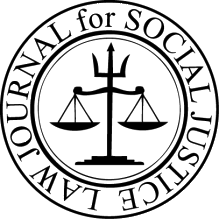By Kyle Bycroft. Arizona has seen an unprecedented rise in its unhoused population in the last several years, and senior citizens bear some of the greatest hardships of life on the street. Unhoused seniors often face unique and long-lasting health impacts due to factors like exposure to illness, addiction, unchecked mental health problems, and extreme temperatures—high in the summer and low in the winter. Now, states are using creative means to combat the crisis by diverting federal Medicaid funds to provide housing for their most vulnerable residents. But doctors and housing experts say temporary solutions are not enough to create lasting change.
When utility bills become death sentences
By Sukhmani Singh. Rising energy prices and stagnant wages are leading to a “tsunami of shutoffs” by electric utilities that pose an imminent danger to vulnerable residents, especially those who live in climates that experience extreme temperatures. Additionally, higher costs often cause residents to use less energy than they need to stay safe—like when elderly people living in cold climates set their heat too low, introducing risks of cardiac and respiratory problems due to prolonged exposure to cold conditions. It is essential to urge state governments and public utility commissions to hold utility companies accountable and not allow corporate greed to threaten people’s well-being.
Illinois abolishes cash bail
By Kayla Bramwell. In September 2023, Illinois became the first state in the U.S. to eliminate cash bail, marking a drastic change in the state’s pretrial detention practices. The Pretrial Fairness Act—an addition to 2021 criminal justice reform legislation—allows judges more discretion in determining whether a criminal defendant must remain in jail while awaiting trial. Unless someone is a serious flight risk or a danger to public safety, they have a good likelihood of returning home in the meantime. This change is already having an impact, especially on lower-income defendants who cannot afford the often-exorbitant cost of bail.
Displacement and migration due to climate change must be a consideration in new climate policies
By Grace Hulin. There are clear links between the growing effects of climate change and a recent rise in human migration worldwide. Related consequences, such as climate gentrification, add new burdens to vulnerable and poor communities. While wealthy people move to higher ground—both literally and figuratively—and developers swoop into affected areas, many people are left to fend for themselves in the fallout. New climate-focused policy must consider the effects of the climate crisis on vulnerable communities in all phases of development.
The cost of innocence
By Sarah Hartley. Reentry into society is a difficult process for people leaving incarceration, especially when major societal changes have occurred during their time in prison. Services and funds exist to help people get back on their feet and resume a lawful and productive life after time behind bars, but those services often overlook people who were exonerated—were not convicted—yet still spent time incarcerated. Whether or not someone is ultimately convicted, arrest and incarceration can carry a great deal of stigma and prevent someone from effectively reintegrating.
